10+1 facts and myths about caffeine
Every morning I get out of bed and stumble into the kitchen. There I make myself a mug of hot dark Kazaar lungo. The first sip tastes almost like hot smoke, the second is already softer, smoother. Almost instantly I can feel the buzz: my brain switches into gear and I start to function on a higher level. I’m awake.
1. Caffeine uptake and half-life
Unfortunately, the instant wake-up effect of coffee seems to be a myth. Depending on your metabolism, it takes up to 45 minutes for the caffeine in coffee to enter your blood stream. So the effect I’m experiencing is either a placebo or it’s to do with the bitterness of the coffee itself. This also means there should be no issue taking a cup of coffee right before bed time, as long as you fall asleep before the effect of the caffeine kicks in. In fact, I often take a strong coffee before I go to bed to help me sleep. And as to how long it takes for caffeine to leave the system, its half-life is between 5 and 8 hours. So if you’re not used to coffee, the effects of a single cup could stay with you most of a working day.
2. Origin and evolution
Caffeine can be found in a number of plants, either in the seeds (like coffee seeds or ‘beans’, the berries of guarana or the kola nut) or the leaves (like in the tea-plant). Evolutionary, caffeine has evolved to act as an insecticide, paralysing any larvae that feeds off the plant. It also seem to work as an inhibitor for seedlings of the same species, making sure no other plants grow too close in order to avoid competition for resources. Additionally, caffeine seem to trigger a reward behaviour in honey bees pollinating the plant, encouraging them to revisit similar plants, which would increase the probability of successful reproduction.
3. The colour of caffeine is – clear?
Rather counter-intuitively, caffeine is actually clear when mixed with water, so the colour intensity of the coffee or tea is a poor indicator as to how much caffeine it contains. For instance, dark roasted coffee contains less caffeine than light roasted, due to the fact that the roasting process removes some of the caffeine. And pale tea often contain as much – if not more – caffeine as black tea.
4. Tea vs coffee
Speaking of tea: you’ve probably heard that tea contains more caffeine that coffee. This is strictly true, if measured by dry weight, but as a prepared beverage coffee contains many times more caffeine than tea. Which – if you think about it – you already knew from the effect of coffee compared with the much weaker effect of tea.
5. Kola, cola or coke?
Just like coffee is originally from Africa, so is the kola tree. The nuts of that tree contains caffeine and has traditionally been chewed to produce a stimulant effect.
More recently, extracts from the kola nut have been used in certain soft drinks to give them a similar effect (and also possibly create an addition to the product in the consumer). However, coca leaves are no longer used, so perhaps one of the more known brands should consider changing the name?
6. Chocolate
I’ve written a post on chocolate before, where I explained all its amazing benefits. In addition to all its other qualities, dark chocolate also contains quite an amount of caffeine, as much as coffee in fact.
The effect is however reduced due to the combination of theobromine and theophylline that are present in relatively high levels. This is why you don’t get the same buzz from chocolate. (What? No, sorry. That buzz is the effect of all the sugar found in chocolate. I’ll save the pros and cons of sugar for another post.)
7. Side effects
There are several misconceptions about the effect of caffeine (and coffee in particular) on our health. One is that drinking too much coffee will cause gastric ulcers, and that we should limit our intake to only one or two cups a day.
This is false. Gastric ulcers are caused not by coffee but by the bacterium Helicobacter pylori, something the Australian doctors Barry Marshall and Robin Warren proved in the 1980s: Dr Marshall deliberately drank a concoction containing this microbe and within days, he had developed several gastric ulcers, without drinking copious amounts of coffee.
8. Health benefits
In fact, rather than being detrimental to our health, caffeine seem to offer some protection against a range of diseases, including Parkinson’s, Type 2 diabetes, liver cirrhosis and certain types of cancer. You would need to consume a lot of coffee to get these effects though; more than 4-5 cups of coffee per day.
9. Loo breaks
Another common misconception is that caffeine is strongly diuretic, and that you will have to run to the loo all the time if you drink tea, coffee or cola drinks. The truth is that caffeine is only mildly diuretic and only in people who are not used to it. One of the amazing things about caffeine is that all the side effects (sleep disturbances, nervousness, minor muscle tremors etc) wear off as you get used to the drug. The benefits however (alertness, increased concentration capabilities, reduction of physical fatigue etc.) all stay with you, regardless of how long you’ve been using caffeinated drinks.
10. Toxicity
Even so, as with most alkaloids, caffeine is toxic to human beings in high enough concentrations. It would however take 80-100 cups of coffee to achieve a lethal dose. The risk of overdosing on coffee is therefore rather remote, but there has still been at least one reported death attributed to caffeine: a man suffering from liver cirrhosis overdosed on caffeinated mints.
11. Memory enhancement
But I’ll end this list with a new discovery: it would seem that caffeine will help us with memory consolidation, i.e. the process of converting short-term memories to long-term memories. In a recent study, people who consumed two cups of espresso just after a memory test outperformed the placebo group. There seem to be a sweet spot at 300 mg, though, so don’t overdo it. Two cups of espresso is just enough – no more, no less.
The dark mistress
Overall, caffeine seem to be quite a drug. No real side effects (and the minor ones that do exist, fade away over time), and several mental and physical benefits. But drinking tea or coffee isn’t down to logic; it’s a life style – a passion, even. Once we get over the bitterness of the dark mistress, we just can’t get enough of her. Which in the cold light of logical thinking might be a drawback, but I really don’t care. Give me another mug of that strong dark hot stuff.

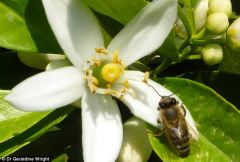
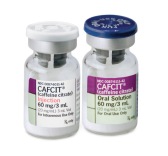
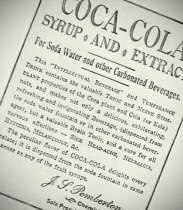
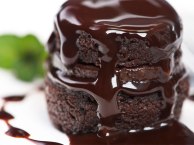
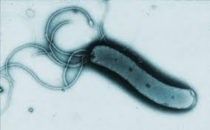
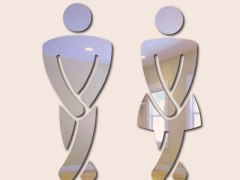
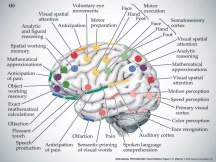


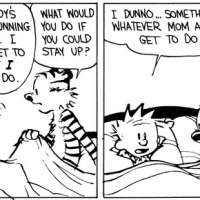










Dear caffeine: I miss you, but you sometimes give me terrible headaches, so I am avoiding you. But the mornings just aren’t the same without you. It’s like we’ve had a heartwrenching breakup and I’ve yet to get over you, even though it’s been 15 years now. Love, Amy.
(Coffee totally makes me act like the lady in the restroom sign, Andreas. But most likely because I don’t drink it often. It’s why I don’t drink it on road trips. I’d never get anywhere.)
LikeLike
I’ll reintroduce you to the dark mistress when you come to visit layer this year. I’ll start with decaf and then sneakily ramp it up. You’ll love it.
LikeLike
Okay, this was quite fascinating..I had no idea I was so ignorant about caffeine. I also need another cup of coffee.
LikeLike
Thank you! There are a lot of interesting facts and misconceptions about caffeine. And yes, one can always do with another cup of coffee.
LikeLike
I miss good coffee: it’s hard to find here in Peru. The best beans are exported and most places fail at roasting and brewing the beans you can get. I day dream of the coffee I’ll drink when I get back to Australia after a year without a prefect brew.
LikeLike
I find it ironic and sad that there’s no good coffee on Peru. And I feel a bit guilty, since it’s because of me and all the coffee I buy they choose to export all the high quality stuff. Well, not just me. Perhaps.
LikeLike
Hm, I can find ok beans here in the wealthy suburbs of Lima, but coffee culture hasn’t really taken off so there’s no-one to brew it properly anyway.
Starbucks is hugely popular for those who can afford to pay 10 soles a cup for undrinkable swill, so it’s not the price that’s depriving me of a well-brewed cuppa.
LikeLike
Maybe it is part of “not being used to it”, but actual coffee makes me nauseous. And it’s sad because I really like it, but after I got a coffee maker and had five days in a row of nausea, I figured that’s what it was. I can drink espresso-type drinks no problem, probably because there’s only one or two shots of espresso and a lot less caffeine, but that’s what I’ve had to reduce my coffee intake to. Now my coffeemaker sits on my shelf unused. Maybe I should exchange it for a latte’ maker.
LikeLike
Hmm… I don’t think it’s the caffeine itself that makes you nauseous. A large mug of filter coffee only contains 200 – 250 mg caffeine, whilst a couple of shots of espresso contains up to 300 mg. More likely it’s the amount of coffee consumed that disagree with you; perhaps adding milk or taking it in smaller cups would help? Or, indeed, get an espresso/latte/cappuccino machine; there are some very decent capsule-based ones around now that aren’t too dear.
LikeLike
“You know, this is — excuse me — a damn fine cup of coffee!”
LikeLike
You better believe it. Black as midnight on a moonless night.
LikeLike
Nice!
LikeLike
Very informative post!
I am a researcher studying variation in responses to caffeine at Florida Atlantic University. I am currently looking for participants to take a short survey about caffeine. It would be great to have some feedback from your readers on the topic at hand!
PsychData Survey #158958
https://www.psychdata.com/s.asp?SID=158958
How to participate:
This study is open to caffeine enthusiasts, those who abstain completely, and all those in between. Participants must be at least 18 years of age
LikeLike
Thank you!
I must admit my mouse cursor was hovering over the ‘spam’ button as I read your comment, but in the end I judged it to be a genuine comment and the study seems to be a legitimate.
Good luck with it.
LikeLike